Writing a Rock Solid Resume for Manufacturing and Skilled Trade Jobs
I’m gonna let you in on a little secret… we’re living in a world of change.
“Well, duh!” you reply, “Did you just wake up from a 2-year coma yesterday?”
Okay, okay, just hear me out.
Not all of these changes are bad, and I’m not talking about not having to shake anyone’s hand ever again. Thankfully, one of the positive changes (thanks, in part, to the wisdom, wit and popularity of Mike Rowe) is that the Trades and Manufacturing sectors are making a huge comeback in the US economy.
Since the Industrial Age began we have never seen such a demand for skilled workers to build and “fix” stuff for the benefit of our society. The manufacturing and trades sectors, as Mike Rowe frequently mentions, have a much faster path for advancement and financial security, without the need for $100,000+ in educational debt. This wave of “blue collar” jobs is beginning to crest with the reopening of our post-Covid economy.
“If you are a welder with a work ethic, you will be among the dozens of people making six figures.”
That being said, getting a manufacturing or Skilled Trades job in today’s economy is a different process from thirty years ago. Back “in da day,” you needed references, credentials and a handshake. You may have needed to fill out an application, but even that was rare. Not so in the modern world. Today, especially after Covid, you cannot just walk onto a work site anymore and speak with the foreman. You need a sharp resume to upload to job portals which shows off your skills, credentials, references and work history. Whether you’re just entering the blue-collar labor market or are a Journeyman in a Skilled Trade, a solid resume will get you noticed by busy hiring managers nationwide.
Here’s a quick run-down of how to create a rock-solid resume, along with a couple of examples:
Start with your Name, Contact Information, and Headline
As typical of most resumes, you want to start off with all of the vital information first. Your full name, where you live (city and state usually suffice), a good phone number and a professional sounding email address (such as stevesmith1980@gmail.com). In today’s age, you might also want to note that you accept texts at your phone as well as calls (see sample resume).
Your headline should be a one sentence summary that describes who you are and what you do (see example).
List Your Skills and Accomplishments
Try to use terms that you think hiring managers will be searching for. List all of your hard skills including skills you may think are too basic, such as “Expert at using hand tools.” And don’t forget those “soft” skills such as being a team player, demonstrating leadership in a fast-paced, dangerous environment, and creative problem solving.
Next, list your accomplishments at your current and previous workplaces. Have you received any incentives for your work performance? Did you train anyone? Did you earn a perfect safety rating? Perfect attendance? Did you boost efficiency in your department or at a job site? These are definitely things hiring managers and HR personnel like to see on a candidate’s resume.
Followed by your Certifications and Awards
This is definitely a must if you have any because awards and certifications are a valid substitute for completing college coursework. In today’s age, you can get a certificate for just about any skill for a low price or even free online, so it’s worth a Google search to see what’s available in your specialized industry.
Then add your work history
This is where the rubber meets the road. Hiring managers and staffing recruiters love to see great tenure at your past & present jobs. Should you have less than a perfect work history, be sure to list what you did in the gaps between jobs. Many skilled Trade workers perform contract work while they’re between jobs or even as a side gig, so if you do, make sure you list it!
Also be sure to have a consistent structure when listing your work history. Here’s a great example.
If Required: List Three References
References are still important when seeking a job in today’s market. Read the job description and requirements carefully; many employers require at least three references listed on your resume. It’s best to have one reference who was a superior from a previous job, a colleague, and a personal reference (like a good friend).
NOTE: Be sure you get your references’ permission before giving out their phone numbers and email addresses!
- Keep it BRIEF
One job opening receives, on average, over 250 applicants. That being said, hiring managers, recruiters and HR associates are super busy and have exactly 8 seconds to look at your resume, so try like heck to keep your resume to a single page. Remember, the whole point of a resume is to be an advertisement which prompts the viewer into contacting you for an interview.
- Think you’re done? Nope! PROOFREAD, PROOFREAD, PROOFREAD
Now that you’ve created a rough draft of how your resume will be laid out, don’t forget to have at least 2 other trustworthy people look at it for you to find typos and grammatical errors. When you get the corrections made and feel that you’re ready to upload it to all the job sites, have a new trustworthy person take a look at it just to make triple sure that there aren’t any mistakes.
I cannot stress this enough… If you’re seeking to enter or upgrade your position in the manufacturing or Skilled Trades industry, now is the time! If you’d like to press the “easy button” and get hired even faster, contact us today. We have a number of manufacturing and Skilled Trades positions open at this time. And we’ll be happy to show you how to write and/or improve your resume, as well as give helpful interviewing pointers which will get you hired with a great company licketty split!

Written by Robin Finnell, FirstOption’s Marketing & Communications Specialist


